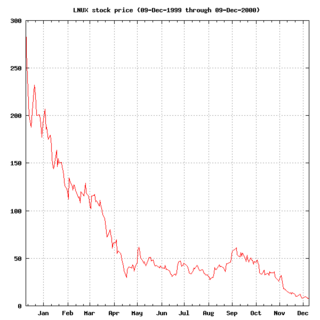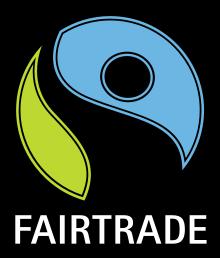
Franchising is based on a marketing concept which can be adopted by an organization as a strategy for business expansion. Where implemented, a franchisor licenses some or all of its know-how, procedures, intellectual property, use of its business model, brand, and rights to sell its branded products and services to a franchisee. In return, the franchisee pays certain fees and agrees to comply with certain obligations, typically set out in a franchise agreement.
Business is the practice of making one's living or making money by producing or buying and selling products. It is also "any activity or enterprise entered into for profit."

A cooperative is "an autonomous association of persons united voluntarily to meet their common economic, social and cultural needs and aspirations through a jointly owned and democratically-controlled enterprise". Cooperatives are democratically controlled by their members, with each member having one vote in electing the board of directors. Cooperatives may include:

In accounting, revenue is the total amount of income generated by the sale of goods and services related to the primary operations of the business. Commercial revenue may also be referred to as sales or as turnover. Some companies receive revenue from interest, royalties, or other fees. "Revenue" may refer to income in general, or it may refer to the amount, in a monetary unit, earned during a period of time, as in "Last year, Company X had revenue of $42 million". Profits or net income generally imply total revenue minus total expenses in a given period. In accounting, in the balance statement, revenue is a subsection of the Equity section and revenue increases equity, it is often referred to as the "top line" due to its position on the income statement at the very top. This is to be contrasted with the "bottom line" which denotes net income.
A pre-entry closed shop is a form of union security agreement under which the employer agrees to hire union members only, and employees must remain members of the union at all times to remain employed. This is different from a post-entry closed shop, which is an agreement requiring all employees to join the union if they are not already members. In a union shop, the union must accept as a member any person hired by the employer. By comparison, an open shop does not require union membership of potential and current employees.

A housing cooperative, or housing co-op, is a legal entity, usually a cooperative or a corporation, which owns real estate, consisting of one or more residential buildings; it is one type of housing tenure. Housing cooperatives are a distinctive form of home ownership that have many characteristics that differ from other residential arrangements such as single family home ownership, condominiums and renting.
A franchise agreement is a legal, binding contract between a franchisor and franchisee. In the United States franchise agreements are enforced at the State level.
A union security agreement is a contractual agreement, usually part of a union collective bargaining agreement, in which an employer and a trade or labor union agree on the extent to which the union may compel employees to join the union, and/or whether the employer will collect dues, fees, and assessments on behalf of the union.
A mutual organization, or mutual society is an organization based on the principle of mutuality and governed by private law. Unlike a true cooperative, members usually do not contribute to the capital of the company by direct investment, but derive their right to profits and votes through their customer relationship. A mutual organization or society is often simply referred to as a mutual.
In the United States, a group purchasing organization (GPO) is an entity that is created to leverage the purchasing power of a group of businesses to obtain discounts from vendors based on the collective buying power of the GPO members.
A 501(c) organization is a nonprofit organization in the federal law of the United States according to Internal Revenue Code and is one of over 29 types of nonprofit organizations exempt from some federal income taxes. Sections 503 through 505 set out the requirements for obtaining such exemptions. Many states refer to Section 501(c) for definitions of organizations exempt from state taxation as well. 501(c) organizations can receive unlimited contributions from individuals, corporations, and unions.

For market data as used in marketing, see marketing information system
A franchise disclosure document (FDD) is a legal document which is presented to prospective buyers of franchises in the pre-sale disclosure process in the United States. It was originally known as the Uniform Franchise Offering Circular (UFOC), prior to revisions made by the Federal Trade Commission in July 2007. Franchisors were given until July 1, 2008 to comply with the changes.
A food cooperative or food co-op is a food distribution outlet organized as a cooperative, rather than a private or public company. Food cooperatives are usually consumer cooperatives, where the decisions regarding the production and distribution of its food are chosen by its members. Like all cooperatives, food cooperatives are often based on the 7 Rochdale Principles, and they typically offer natural foods. Since decisions about how to run a cooperative are not made by outside shareholders, cooperatives often exhibit a higher degree of social responsibility than their corporate analogues.

The United States Professional Poolplayers Association (UPA) is the governing body for the sport of men's professional pool in the United States, as well as the organizer of a major national amateur league, and a variety of pro and amateur tournaments. The organization, now based in Manhattan, was founded in January 2002 in Arizona by professional players, to replace several competing and dysfunctional men's professional pool organizations which had suffered years of problems such as inability to pay out winnings or to keep a stable schedule of competitions. UPA was formerly named the United States Pool Players Association, and has also frequently been unofficially referred to as USPPA or USPA, especially in reference to its professional side versus its amateur UPA League operations. The UPA Tour series of pro tournaments cover multiple pool disciplines, including eight-ball, nine-ball, ten-ball, and straight pool; the amateur UPA National Championships are team eight- and nine-ball events. The organization also offers instructional programs, and event promotion/production for pool tournaments and trade shows.
The Marketing Research Association (MRA) was a 501(c)(6) non-profit, membership trade association, incorporated in New York state. Members were companies that specialized in, or had departments that specialized in, market research, consumer opinion and related marketing intelligence. Individuals who were marketing research practitioners could also become members.

The Stage Directors and Choreographers Society (SDC), formerly known as Society of Stage Directors and Choreographers (SDC), is an independent national labor union established in 1959, representing theatrical directors and choreographers working on Broadway, National Tours, Off-Broadway, and in various resident, regional, and stock theatres throughout the United States.
The Independent Filmmaker's Coalition (IFC) is a Kansas City-based non-profit organization dedicated to promoting independent film, video, and media production. The IFC meets at the Alamo Drafthouse in Kansas City, Missouri.

A fair trade certification is a product certification within the market-based movement fair trade. The most widely used fair trade certification is FLO International's, the International Fairtrade Certification Mark, used in Europe, Africa, Asia, Australia and New Zealand. Fair Trade Certified Mark is the North American equivalent of the International Fairtrade Certification Mark. As of January 2011, there were more than 1,000 companies certified by FLO International's certification and a further 1,000 or so certified by other ethical and fairtrade certification schemes around the world.
Franchise fraud is defined by the United States Federal Bureau of Investigation as a pyramid scheme.







